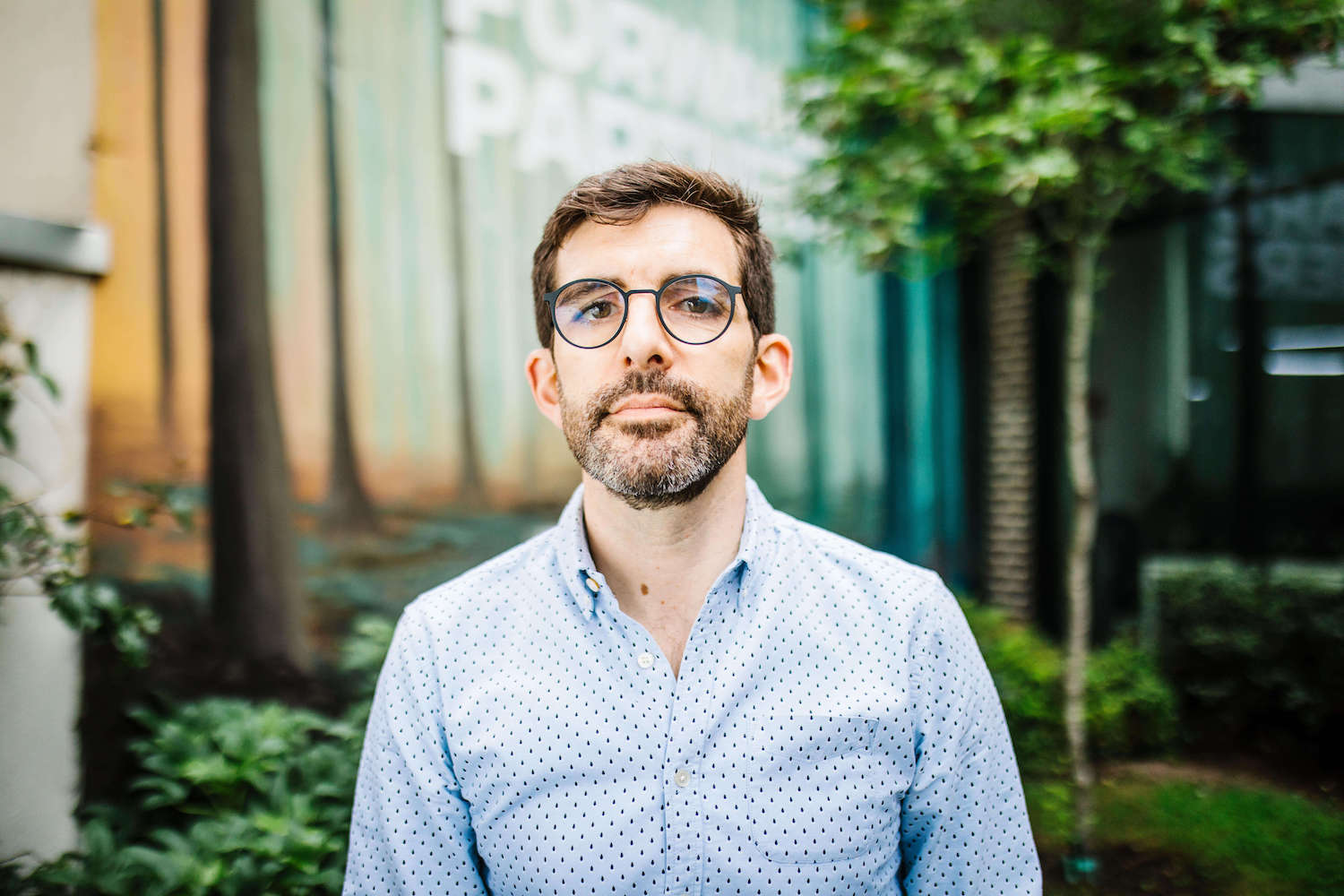The Applied VC: Full-Service Funding Instead of Commoditised Capital
An interview with Nic Brisbourne, Forward Partners
Nic Brisbourne is Managing Partner at Forward Partners, the UK’s leading early-stage VC, currently supporting the UK’s next generation of AI, e-commerce and marketplace businesses. He has been personally responsible for over 40 investments including Zeus Technology, Unbound, Conversocial, StrikeAd and Lyst. Nic is also the author of one of Europe’s most popular venture capital blogs – www.theequitykicker.com. He took the time to speak with prepaid card provider Soldo about how Applied VC is providing founders with a higher chance of success.
Let’s start with the obvious question. Like all VCs you see lots of pitches; so what are you looking for?
Every good VC looks for the same three things: a great team, a great product, and a large and attractive market. We like those things in the same way as the rest of the industry.
I think we differ a little from the rest of the industry, though, particularly with our focus on early stage companies. Other VCs will say that of the three key criteria – team, product and market – at the early stage, team is by far the most important. The logic goes that in the early days, you haven’t really got anything else: the product isn’t ready, the market can change, but the team is what you have. And so you should focus disproportionately on the team.
Now, we love a great entrepreneur and team as much as anybody else, of course, but over the years we have realised that a great team working on an idea that isn’t convincing is not a recipe for success. Maybe they’ll pivot to something great eventually, but in the interim period, the valuation goes sideways – and that’s not a good place for a VC to be.
Plus, that’s not even the worst outcome. Sometimes you get great founders with an average idea; but because they’re so good, they make it work to a degree. They find a niche in the market where they can grow some revenues and then they raise some more money. Ultimately, the quality of the idea gets found out, but by that point, that business has raised £5M-£10M. It’s got a big burn rate, it’s too big to pivot, and it goes bust. And everyone’s lost a lot of money.
So having both a great founder and a great idea at the outset is super important.
And those that do pivot to a new model don’t always make it. I felt a couple of years ago that there was a ‘cult of pivoting’ – successful pivots were in the tech press all the time. But you only hear about the pivots that work – not the ones that failed!
Yes! And even if you succeed, it’s a really painful experience! Your first idea has failed. You don’t know if the second idea is going to work.
Plus, step one of the pivot is to get your costs really low in order to preserve the runway to give yourself a chance of succeeding – so the team has to go. It’s just horrible.
We love a great entrepreneur and team as much as anybody else, of course, but over the years we have realised that a great team working on an idea that isn’t convincing is not a recipe for success.
Given your focus on the idea, what makes a great idea?
We’re obsessively focused on customers and use cases. We don’t just ask who is going to use a product, for what and why. We really want to interrogate the customer:
- What are they doing at the moment that they will be prepared to move away from, to use this idea (unless it’s something new, which of course brings its own problems)?
- If they’re going to spend money on this product, where is that money coming from? Because everyone’s still got the same amount of cash as before you launched your company, so if they’re going to spend money on your product, understand that it means you’re asking them not to spend their discretionary money on something else.
That must matter more than ever. The average consumer is overloaded with options. We find in fintech particularly that the inertia people have with their existing service providers is huge…
Absolutely. It’s not too much of an overstatement to say that, 20 years ago, at the beginning of the internet, you could put almost any quality of experience online. You could build a decent-sized user base without having a slick product at all, because you were moving people online for the first time. It was better than, say, going to the shops.
That’s still true in some markets. Four years ago, we invested in a company called Patch which is bringing garden centres online, a market which is still 95-99% offline; so there are still odd pockets where you can bring a sector online for the first time.
But for the vast majority, that’s not the case. The customer experience has got to be better. So where we used to talk about Eric Ries’ concept of Minimum Viable Products, we now talk about Minimum Lovable Products: consumers have got to love a product enough to move away from their current alternative.
And what are the metrics for customer love? What are your benchmarks?
The industry classic is NPS – the Net Promoter Score; and we encourage all our companies to track that as soon as they can. But it’s by no means the only option, especially at the startup stage.
In the very early stages, we work with our companies to conduct customer interviews; exploring how potential customers have thought about the problem space, how frustrated they are with their existing solutions, and how much their eyes light up when we suggest something new. It’s this very low-volume qualitative evidence that gets us over the line for initial investment before a product has been built.
Then, when you’ve got a product and a small number of customers, a great early sign is when your customers are spontaneously writing positive letters to you. One of our investments is in a company called Live Better With; they make and sell products to help people living with chronic conditions or challenging life circumstances.
For example, when you have chemotherapy, if you eat with metal cutlery, then the food will taste horrible and metallic; so Live Better With sells bamboo cutlery, amongst other things. When the business was just two months old, they received an email from one of their customers saying: “You saved our Christmas. My dad has cancer, he’s been having chemotherapy, and you helped him to enjoy his Christmas lunch”. When you get letters like that, it’s a strong sign that you’re resonating with your customers – yes, it’s on a small scale, but it’s a predictor of something you can build on.
And as you get bigger, NPS and engagement metrics start to become relevant: how frequently people come back to your site, how long they spend there, how much they talk about you on social media etc.
It’s easier at scale, right?
Everything is easier to measure at scale. You get plenty of other difficulties building out, but measurement becomes much easier.
Where we used to talk about Eric Ries’ concept of Minimum Viable Products, we now talk about Minimum Lovable Products: consumers have got to love a product enough to move away from their current alternative.
As you operate at the early stage, how do you help a company scale?
At Forward Partners, we’ve invested massively in a team of people to support our portfolio companies – a bigger investment than any other fund in the UK. We have a studio team – developers, designers etc. – plus recruiters, growth consultants, and brand & communications.
It’s important to understand why. Fundamentally, the best entrepreneurs now have a choice as to where they get their money from. 25 years ago, capital was scarce and just getting access to capital was a win for founders. Then, around the time of the last internet bubble, capital became more abundant and so individual VC partners began to work much harder for their portfolio companies.
In the mid-2000s, some forward-thinking VCs began to differentiate by employing specialists within their management companies. First Round Capital was the first to do this, but today well over half of VCs and nearly all of the most successful funds have a handful of people working in-house on delivery for portfolio businesses.
Forward Partners and perhaps a dozen others globally, including Andreessen Horowitz and Google Ventures, have taken this to the next level, building the team out as comprehensively as possible. We call it “Applied VC”. It offers a richer service for founders and gives them a better chance of success.
Take, for example, Wager, a company we invested in about a year ago. With Wager, you can bet against your friends on football games. The challenge of betting with your friends is that it’s usually a case of evens or nothing: nobody can be bothered working out the official odds. Wager uses odds from bookmakers and handles all the money in the app – so it’s both fair and convenient. But the two founders were both business-oriented. Our team helped them figure out the product vision, we put incredible work into testing prototypes, and then our product developers built it – launching in time for the football season in August 2019. We have been crucial in getting the product to market.
Capital is a commodity; and therefore the winning investors of the future will be the ones that offer the best service. We hope that entrepreneurs will choose to work with us because of the team; and then use the help of the team to accelerate more quickly. More than one founder has told us that our competitors offered more funding, but that with our service layer, their business would be three to six months further forward ahead of the next fundraising round. For a high growth business, that can mean a 100% increase in key metrics and a much bigger valuation next time. And if you believe, ultimately, that entrepreneurship and startups are crucial to the future growth of the economy, and that entrepreneurs can help to solve the world’s problems, then we should all want Applied VCs who are offering better services to entrepreneurs so that they can have a better chance of succeeding: more job creation, more problems solved.
This interview is part of a series by Soldo, the prepaid company card solution that makes your expense accounting simple. You can read more interviews from Soldo’s interview series here.








